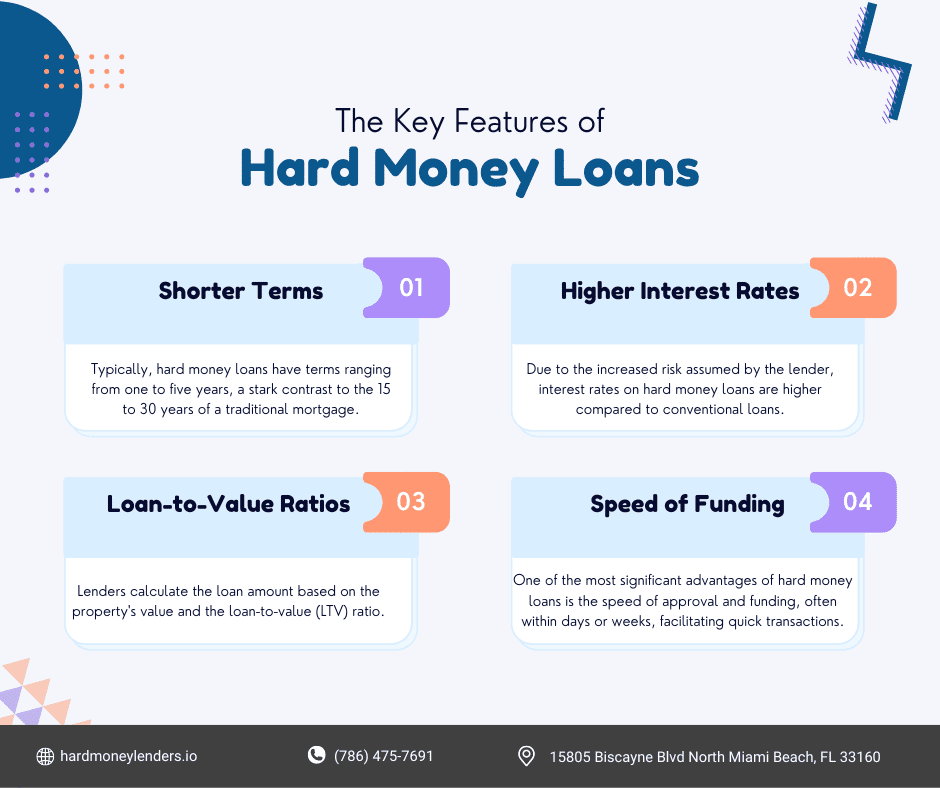Exactly How Hard Money Loans In Georgia Aid Investors Close Offers Without Financial Institution Delays
Exactly How Hard Money Loans In Georgia Aid Investors Close Offers Without Financial Institution Delays
Blog Article
Just How a Hard Money Loan Works: a Comprehensive Overview for Debtors
Tough money car loans present a distinct financing alternative that leverages genuine estate as security, appealing specifically to those that need fast accessibility to resources. Comprehending the mechanics of these financings is essential for borrowers, as the procedure varies considerably from standard financing approaches.
Understanding Hard Cash Fundings
Recognizing hard cash finances is important for both genuine estate financiers and borrowers seeking quick capital. Hard money loans are safeguarded by actual estate, with the home itself serving as security.
The regards to difficult cash loans are typically short-term, ranging from a few months to a couple of years, and they often feature greater rates of interest contrasted to traditional fundings. This costs shows the higher risk lenders assume and the expedited nature of the loan process. Capitalists regularly use difficult money fundings for fix-and-flip jobs, allowing them to get, restore, and market homes quickly commercial.
Moreover, the underwriting criteria for tough money lendings are generally less rigorous, facilitating much faster authorizations. Consumers should remain cautious regarding the settlement terms and prospective charges for default, as these fundings can lead to substantial financial consequences if not managed properly. Understanding these dynamics is vital for informed decision-making in property financing.
The Application Process
Getting a difficult cash loan includes a streamlined procedure that can be finished relatively swiftly compared to traditional loaning techniques. The primary step is to identify a reputable tough cash lender who specializes in the kind of home funding you require. Borrowers commonly start by sending a car loan application, which consists of essential details about the home, the designated use the funds, and their economic standing.
As soon as sent, the lending institution will perform a property appraisal to identify its market price and evaluate the risk involved. Unlike conventional fundings that greatly evaluate credit history, tough cash loan providers mostly concentrate on the collateral value. If the borrower's credit background is much less than stellar., this means that residential or commercial properties with solid equity can protect funding also.
After the assessment, the lending institution will offer a loan proposal, detailing the terms, rate of interest, and any kind of added charges. Upon acceptance, consumers will require to provide essential paperwork, such as evidence of identity and possession of the residential or commercial property. The final step is the closing procedure, where the funds are disbursed, enabling customers to utilize the funding for their designated objective.
Advantages of Hard Cash Finances

Furthermore, hard money lendings are primarily based upon the worth of the collateral rather than the borrower's creditworthiness. This can be specifically beneficial for those with less-than-perfect credit report or for financiers seeking to leverage buildings with equity. The adaptable underwriting criteria allow consumers to accessibility funds that may otherwise be not available through standard financing networks.
Moreover, tough money lending institutions commonly have a more structured authorization process, which can be helpful genuine estate investors who call for quick access to resources for residential or commercial property procurements or remodellings. This agility can bring about a competitive side in fast-paced markets.
Last but not least, difficult cash finances can offer a useful device for customers looking for to finance one-of-a-kind jobs that do not fit traditional financing standards, thus increasing their investment capacity.
Possible Threats and Downsides
While hard money loans can be an appealing alternative for some customers, they are not without their prospective threats and downsides. One of one of the most substantial concerns is the high interest rates related to these finances, which can frequently surpass those of traditional financing. Hard Money Loans In Georgia. This raised cost can lead to significant monetary pressure, particularly if the borrower deals with unpredicted challenges in repaying the finance
Additionally, hard money fundings commonly feature much shorter settlement terms, frequently varying from one to three years. This restricted timeframe can create pressure for customers to sell or refinance their building quickly, which may not constantly straighten with market problems. Furthermore, the dependence on the building's worth instead of the debtor's credit reliability suggests that changes in the realty market can significantly influence the car loan's stability.

Another significant threat is the lack of governing oversight that controls hard money financing. This can bring about aggressive loaning methods or negative terms that are not clear to the debtor. Generally, while tough cash lendings can supply fast accessibility to funds, it is essential for borrowers to completely analyze these risks and consider their long-lasting economic effects before proceeding.
Comparing Hard Cash to Standard Lendings
When evaluating funding choices, it is crucial to understand the key distinctions between tough money fundings and conventional loans. Difficult cash loans are commonly safeguarded by genuine estate and are moneyed by personal financiers or firms.
Rates of interest on hard money loans are generally greater, mirroring the raised risk for lending institutions - Hard Money Loans In Georgia. They supply faster authorization procedures and less rigorous qualification requirements, making them appealing for those requiring prompt financing, such as actual estate investors. Conventional a knockout post car loans, while slower to refine, typically included reduced passion rates and longer settlement terms, making them better for debtors looking for steady, long-term financing
Ultimately, the option in between tough cash and standard financings depends on individual circumstances, including necessity, credit condition, and the particular financial objectives of the consumer. Recognizing these differences can aid lead debtors Click Here in choosing one of the most proper financing option for their demands.

Verdict
In recap, hard cash financings give a sensible financing option for debtors calling for fast accessibility to funds, specifically when standard lending opportunities are inaccessible. The structured application process, integrated with the ability to leverage actual estate as collateral, supplies unique benefits. It is necessary to consider the prospective threats and downsides connected with greater interest prices and costs. Eventually, mindful examination of this financing method in comparison to typical financings is essential for educated decision-making.
Comprehending difficult cash lendings is necessary for both actual estate capitalists and consumers looking for fast resources.The terms of tough cash financings are usually short-term, ranging from a few months to a few years, and they usually come with higher interest prices contrasted to standard fundings. Unlike typical lendings that might take months or weeks to procedure, difficult money fundings can typically be protected in a matter of days, permitting consumers to utilize on time-sensitive financial investment chances.
When assessing financing options, it is essential to helpful resources understand the vital distinctions in between hard cash financings and typical fundings.In summary, hard cash fundings offer a sensible financing option for consumers calling for quick accessibility to funds, specifically when conventional borrowing opportunities are unavailable.
Report this page